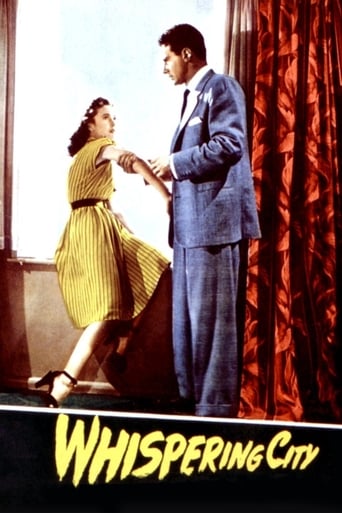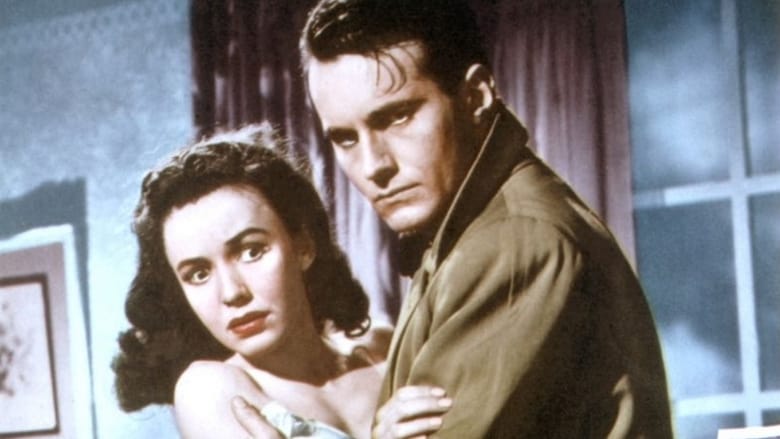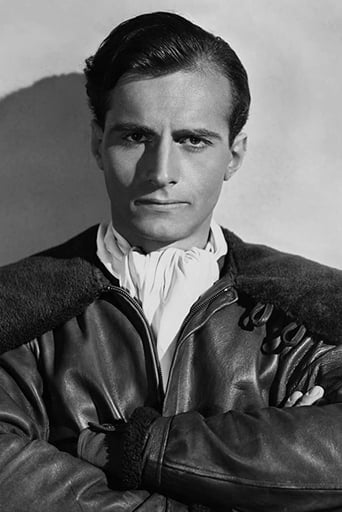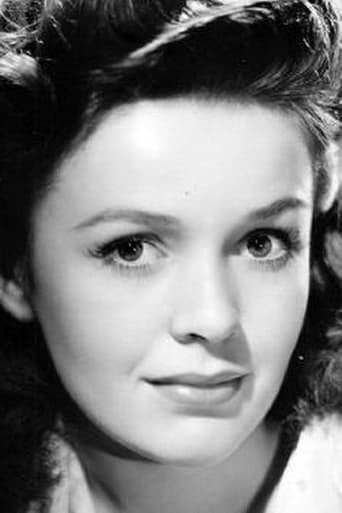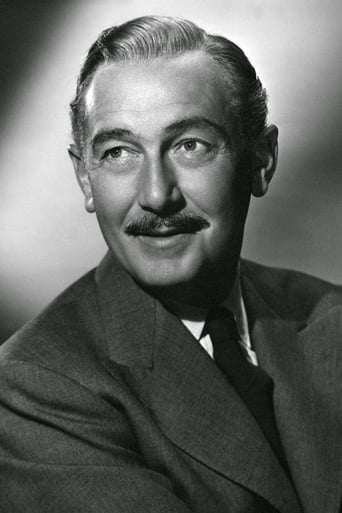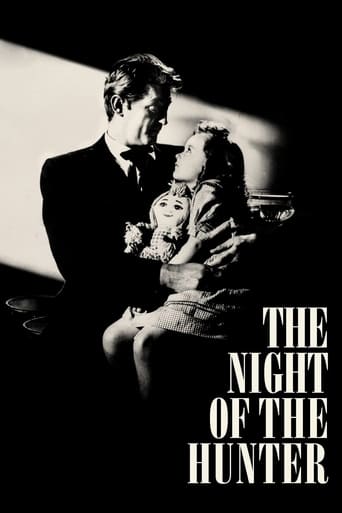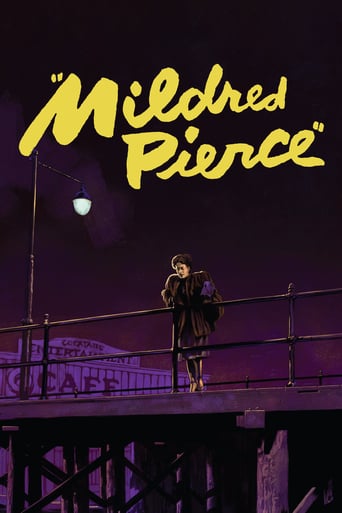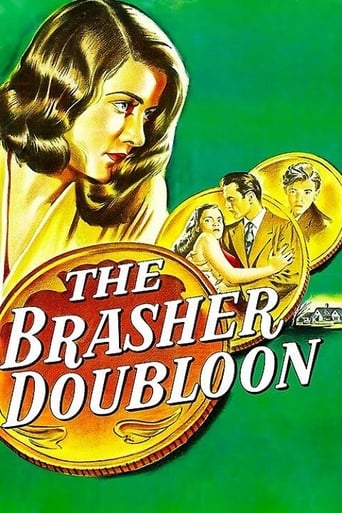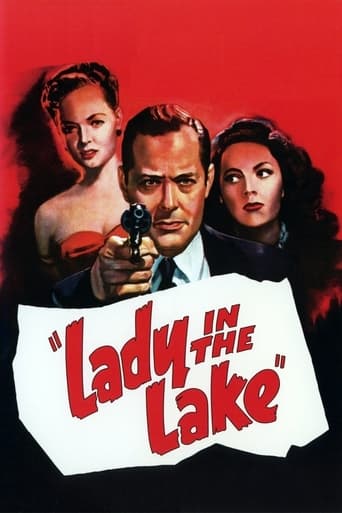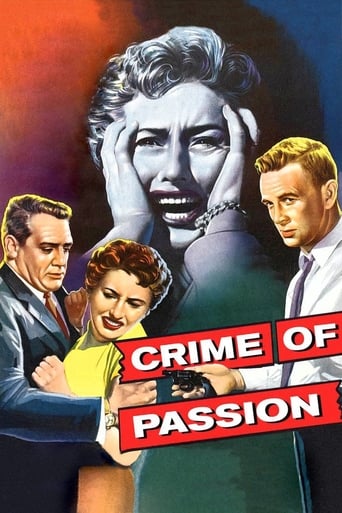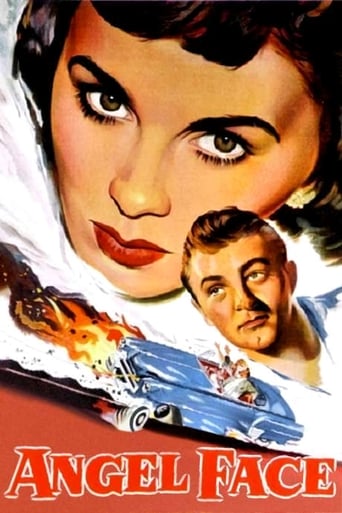Whispering City (1947)
After hearing that a famous actress is dying in a hospital after being hit by a car, a reporter goes to the hospital to interview the actress. She then tells the reporter that her wealthy fiance, who was killed in an accident several years before, was actually murdered. Before long the reporter finds herself in a web of corruption, mental illness and murder.
Watch Trailer
Cast


Similar titles
Reviews
It's no definitive masterpiece but it's damn close.
It's easily one of the freshest, sharpest and most enjoyable films of this year.
Like the great film, it's made with a great deal of visible affection both in front of and behind the camera.
It's easily one of the freshest, sharpest and most enjoyable films of this year.
Intriguing thriller in Quebec involving all kinds of suspense tricks including old murders and new, fake murders and phantoms, haunting memories and romance, suicide and a poor brilliant pianist working on his debut under the terror of his intolerably intolerant wife. The intrigue is difficult to follow as it develops all the time with surprising turns into upside down turbulence, but it nevertheless sticks together and adds up in the end. If you regard the piano concerto ('the Quebec concerto') as the hub around which everything evolves, you'll find it a rather masterful composition of intrigue, cinematography and music - in brief, nothing is actually missing in this intricately spiced stew of a very complicated but exotic repast. It's even worth watching again for enjoying the details.
Mary Anderson is a reporter investigating an old murder case in Quebec. Paul Lukas is a high-end lawyer who was the murderer and, for some reason, he resents Anderson's poking into the crime and "opening old wounds." Boy, would he like her to disappear.Lukas has a friend, Helmut Dantine, who is a brilliant musician married to a shrew. One night, after a particularly bitter argument with her, Dantine shows up plastered at Lukas's house and Lukas puts him to bed. Then he sneaks out into the night with the intention of murdering the shrew, blaming it on Dantine, and blackmailing Dantine into murdering Anderson so that she won't uncover Lukas's earlier crime. Got that? It turns out to be unnecessary for Lukas to murder Dantine's wife because she has already committed suicide and left a note behind, explaining that she couldn't go on living any longer because her nails never dried quickly enough.Lukas, his mind ever dirty, pinches the suicide note and arranges a few other details to make Dantine look like the murderer. The blackmail plan goes ahead. Dantine can't remember a thing from the night before. Lukas tells him that he showed up drunk and bragged about having killed his wife. Lukas is in a position to get him out from under the threat of the hangman's noose, but only if he takes Mary Anderson to Montmorency Falls and throws her in.A slight problem develops when Dantine and Anderson fall in love. Lukas's scheme unravels.It's a B feature and the usual clichés are not avoided. Mary creeps through a darkened house with a candle while an eyeball peers at her through a crack in the door -- that sort of thing. But it transcends the usual cheap mystery if only because it's set and photographed in Quebec, the most nearly European city in North America. The director doesn't go out of his way to give us a tourist's eye view, as Hitchcock did in "I Confess." There is no shoot out in the Château Frontenac. But we see enough of the location to appreciate its verticality and its stony elegance and sometimes severe beauty.Paul Lukas plays the kind of villain he did in "The Lady Vanishes." He's perfectly reasonable, he appreciates the splendor of Dantine's piano concerto -- of which we hear quite a lot -- but he's ruthless too and a little mad.Dantine has chiseled features, like a Bernini sculpture, but their default position is a stern and unyielding frown. He was locked into roles like this because he just couldn't do anything else. On those rare occasions when he tries to smile, the viewer can almost hear the agonized creak of unused mechanisms.Mary Anderson isn't a bravura performer either. She's not stunningly beautiful, not sexy, and her acting achieves a certain plateau and then quits. The thing is that she is eminently likable. She's petite, skinny, and vulnerable. One can imagine being nurtured by her -- she was the nurse in Hitchcock's "Lifeboat" -- but she could never play the scolding wife, for instance.It's a diverting and pleasant feature with no pretensions.
This was the last film directed by the Russian director Fedor Ozep (i.e., Fyodor Otsep), who had been the husband of Anna Sten. (He had directed THE BROTHERS KARAMAZOV in 1931, Stefan Zweig's AMOK in 1934, etc.) As a Quebec production set in Quebec City and at the spectacular Montmorency Falls, this film has a strange history, because it was first shot in French in the same year under the title of LA FORTERESSE, and then re-shot in English with a different cast. The English version is 98 minutes long and the French version 99 minutes long (perhaps because the French speak less fast?) Two French Canadian actresses carried over to the new cast, though in minor roles. In this second version, Paul Lukas does an excellent job of portraying a suave art-lover, music-lover, and cultural philanthropist who is secretly a psychopathic killer. Pert young girl reporter Mary Roberts (Marie Roberts in the French version), played by the charming Mary Anderson, who had been discovered previously by Hitchcock and appeared in LIFEBOAT, does an excellent job of beguiling us and everyone else with her girlish smile as she tries to expose Lukas as a murderer. Lukas's musical protégé of the moment is a handsome young pianist and composer played by Helmut Dantine, who is a creative but tortured soul married to a hysterical wife, who is played by Joy Lafleur. (In LA FORTERESSE, this part had been played by Mimi D'Estee, who in the English language film is given a small part of a dying woman, which, however, she brings off with style.) All of these people do a very good job, and the direction and atmosphere are excellent. The film is notable for the use of a modern piano concerto by the Canadian composer Morris C. David, and with the piano played by Neil Chotem. So classical music and orchestras figure largely in the story. Canada was not known for its feature films at this time, and Canada in American minds was then thought of as a thin strip of land separating the northern border of the United States from the Arctic Circle, populated largely by polar bears and Esquimaux. So this was an early attempt by an infant Canadian film industry to assert itself, to prove that Canadians actually existed and even had their own cities, even though it was all done with a borrowed Russian exile as a director, a Hungarian exile as the bad guy, a Viennese exile as the good guy, etc. But it works. The Canadians can and should be proud of it. I wonder what the original French language version was like, with largely home talent speaking Quebec dialect. The film has a great deal of intensity and is a genuine film noir, which proves, I suppose that whatever that mysterious substance known as 'noir' really is, it does not freeze at the higher latitudes and can survive the northern climes with its vitality intact.
This unusual film noir, photographed in Quebec by Guy Roe (and his astute second unit cameraman, Charles Quick), pre-dates Hitchcock's I Confess by several years. Hitchcock undoubtedly saw the movie because he used its main musical idea in his remake of The Man Who Knew Too Much. In this original, however, the beautiful "Quebec Concerto" by Andre Mathieu is heard throughout, not just at the climax, because the lead male, Dantine, cleverly plays the composer. Other roles are distinguished by the lovely Mary Anderson (later to steal Last of the Buccaneers) as heroine, Paul Lukas (credibly cast as a shifty patron of the arts), dialogue director John Pratt as the news editor who is not nearly as gullible as he pretends, and the very convincing Joy LaFleur as the hero's shrewish wife. The script co-written by Rian James (of La Otra fame) has plenty of noirish plot gimmicks that keep the suspense mounting right up to the climax which, despite location filming at Montmorency Falls, is, alas, a bit tepid. In fact, I'm not over-fond of the whole idea of encasing the plot in a flashback from a talkative and rather boring sleigh-driver; but even as is, most definitely worth a look. (On a decent player, the Alpha DVD has watchable visuals and good sound).

